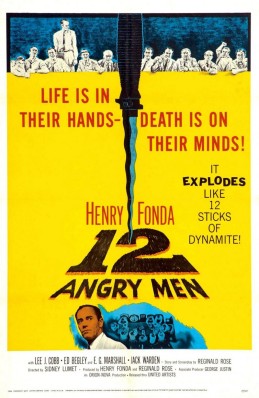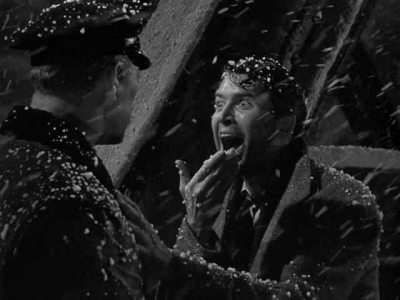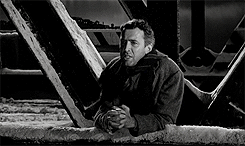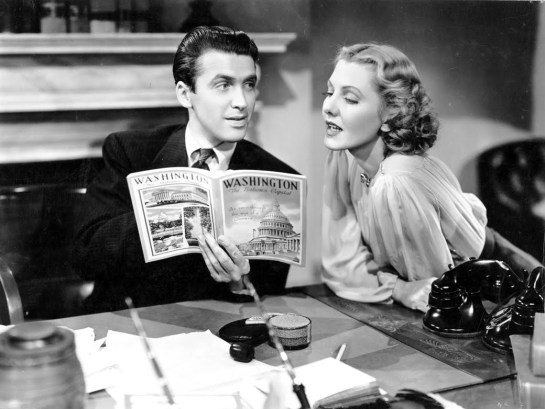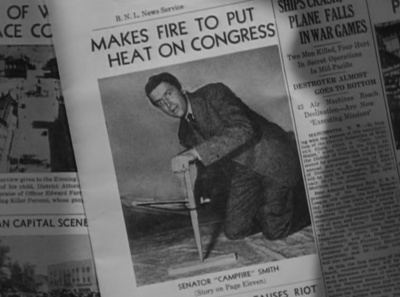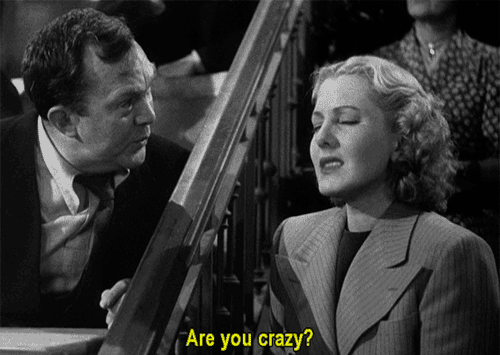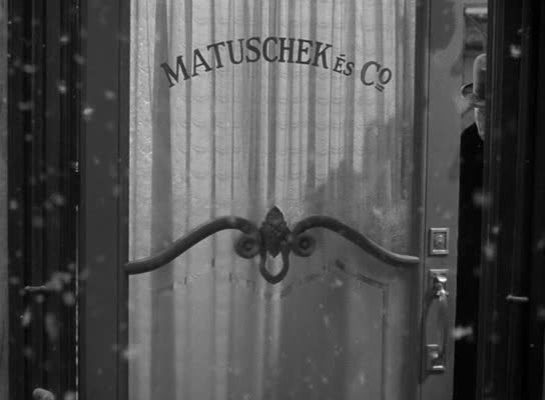
Alvin Lustig’s original dustjacket cover for West’s ‘Miss Lonelyhearts’ (1933).
The world is all abuzz because of the imminent release of Baz Luhrmann’s The Great Gatsby – & why not? One of the world’s best-loved novels, and it promises to be a grand spectacle if nothing else: a cast of stars so big & bright mine eyes dazzle; a soundtrack of songs so anachronistic and out-of-place and kitsch you wonder if it’s a stroke of modernizing genius, or the contrivance of a mind confused beyond redemption. Either way, this particular juror has to reserve judgement until 16th May. The point really is that everybody’s currently a-flutter over Mr. Fitzgerald, because there’s really nothing like a hyped-up Hollywood blockbuster to make folks scramble to their book collections in search of dusty, well-thumbed tomes. And in a slightly related coincidence, I recently read one Mr. Nathanael West for the first time, whom Fitzgerald once called “a potential leader in the field of prose fiction”. They were good friends, Fitzgerald & Nathanael West: they were both brilliant writers mucking it out as screenwriters in shallow Hollywood (which they both despised), slaving away under tyrannous studio heads to churn out sub-standard treatments, script revisions, etc etc. Dreams of bringing literature in all its glory to screen dashed; but never mind, they had the last laugh after all, when they put Hollywood in their books & poked fun at it. More bizarrely, Fitzgerald and West both died within hours of each other; in fact, the rumour-mill has often asked (but has it ever answered?) whether Nathanael West crashed his car that day because he was so distraught at learning that his good friend F. Scott had passed away the night before.
Nathanael West: literary legend or underrated genius? I can’t decide on this one. He strikes me as belonging tragically to the latter category, but his long list of famous fans and the extensive biographies/critical studies almost suggest the opposite – from Dorothy Parker to W. H. Auden to…er…Johnny Depp? (Yes!)…to F. Scott Fitzgerald, Nathanael West has been duly admired. “Wildly funny, desperately sad, brutal and kind, furious and patient, there was no other like Nathanael West”, said Dorothy Parker, which is high praise indeed from this woman of biting words. Auden perhaps was less enamoured – he didn’t like the hollow, satirized religiosity of Miss Lonelyhearts, and so refuses to see West as satirical (“Satire presupposes conscience & reason as judges between the true and the false, the moral and the immoral…but for West these faculties themselves are the creators of unreality…”). But he engaged with West deeply enough to coin a whole malady out of the man: ‘West’s disease’, “a disease of consciousness which renders it incapable of wishes into desires”. A sad view of the man & his work indeed – wishful but without enough gumption to actually desire and long (there’s something more invested and caring and serious about desire as opposed to wishing); thwarted and otherwise than what one wants to be, because one has to be so in order to be wishful in the first place. But hey, despite all this, I’m still going to go out on a limb and say that West is overshadowed and underdogged; when one thinks of great American literature from the ’30s, one does not necessarily hear West’s name listed, though it should be. Perhaps it was his misfortune to have his star out-shone by those of Fitzgerald and Hemingway and other Americans-in-Paris types, all burning through and out at the same time.
***

(Sadly I can’t find the original source for this image & if it’s in the public domain etc, despite running loads of reverse-image searches. Either way this image was found here. If this is a villainous act of appropriation & infringement, do let me know.)
When one is enamoured of a certain period or place, it makes sense to obsess over it through as many mediums (media?) as possible. So my current mania for classic Hollywood film & particularly the ‘Golden Age’ (the ’30s!) led me to Nathanael West, supreme critic and satirist (they say) of all that was simultaneously glitzy & glamorous & seedy & ugly & godawful about LA, Hollywood, and the movies. After all, the screen was a sanitised and falsified representation of what this world was really all about – you only see the beautiful and the successful, the made-its and sometimes the has-beens. The literary types of the age knew this; “This may come as a shock to you, Mr. Goldwyn,” Dorothy Parker once said, a dose of her typical searing, wise-cracking wit (Mr. Goldwyn is the ‘G’ in MGM), “but in all history which has held billions and billions of human beings, not a single one ever had a happy ending.” (We could tell saccharine Disney the same thing!). It’s this curious mixture – of utmost pessimism & cynicism, alongside that biting, dancing wit which makes you laugh in spite of yourself & in spite of all the doom & gloom – that strikes me as the hallmark of these writers, West and Parker and more besides I’m sure.
I began with The Day of the Locust (1939) – it worried me, having more than a slight resemblance to that famous Heinlein sci-fi novel, The Day of the Triffids. And I don’t like sci-fi…West didn’t sound like the kind of guy to write about a dystopian LA overrun by a locust invasion, & yet…the discomfort stuck. Fortunately the novel is not really about locusts (save metaphorically), and it isn’t sci-fi. It’s about a graduate from the Yale School of Fine Art (Tod Hackett) trying to make it in Hollywood, learning about costume and set design. This contrasts oddly with his fine art sensibilities; his is a world of “Goya & Daumier”, and yet his setting is that of a godawful LA, where the streets are filled with people whose “clothing [is] somber and badly cut, brought from mail-order houses” and the houses (built in Spanish, Mediterranean, Japanese, Egyptian, Tudor styles) are ugly beyond kitsch. No little social circle of artistic intellectuals surrounds Tod either; his companions are a ‘fake’ wannabe actress (Faye Greener) whom he’s violently (and I mean, really violently) attracted to; a violent, vicious, sleazy dwarf; a successful screenwriter who enjoys frequenting brothels to watch blue movies (I guess the standard A-list fare gets boring after a while); Faye’s sick-but-still-wantingtobe ex-vaudeville father; and a host of others (brutal cowboys & their Mexican friends, and the quiet, scared, unprepared Homer Simpson*). Silver screen fame & fortune is on almost everybody’s minds; little else defines them.
Glamour? Nope. Disillusionment and seediness a-plenty? Yep. It isn’t a world of romance or love as you’d traditionally know it – Faye Greener, for one, puts “love on a special plane, where a man without money or looks couldn’t move”. (Ah, the shallow trappings we try so hard to dissociate from ‘love’ & ‘romance’ etc – but Faye is disarmingly honest at least.) (Now I hate to reference Green Day in anything I write, but…) West literally gives us a Sunset Boulevard of broken dreams, the ugly behind-the-scenes of decaying hucksters and talentless but beautiful starlet-wannabes, of the disillusioned and overworked and insatiably restless masses (the ‘locusts’ of the title, one can only assume), and of the ruthless and violent. Tod Hackett and Homer Simpson are the odd ones out – Tod because he’s clever enough to stand at a distance and watch, and Homer because he might be the only person in the novel without an ounce of violence in him. (He sits on his porch and watches a lizard creep after flies, & Homer is “on the side of the flies.” “Occasionally the lizard would miscalculate. When that happened, Homer would laugh happily.”) He’s sweet and the most sympathetic of all the characters (insofar as West allows this…there’s an odd sort of psychological closed-offness about all his characters, and even when we’re looking through their eyes and reading things alongside them, we never really do feel like we know them). No place in this sunny, sweaty rat-race for folks like Homer, though, and he’s the ultimate victim of various sorts of torment. There is room, even in West’s alienating (and alienated?) portrayal of a wicked, whimsical world for sadness – either the sordid is the sad, or West suggests that there is room for sadness of almost classical proportions even amidst all the sordidness. And so we watch, confused, as just another movie-premiere in Hollywood descends into violent anarchy and chaos.
‘Watch’ is not a bad verb to apply to West’s novel; one of the most interesting questions that came up when I was doing a film studies module was whether or not, and if so how, the birth of cinema changed the way we conceive of narrative in literature. How cinema changed books, in essence, and our relationship to language. Maybe West has an answer to offer in both The Day of the Locust and Miss Lonelyhearts: the moving image is a form in love with the surface, amply attested to by old films’ adoration of the facial close-up, and sometimes it almost says that this surface is enough. Reading West often feels like an exercise in the sufficiency of the superficial – it is so difficult to scrabble into his words for a deeper psyche, motive, meaning, or message. In a letter to Edmund Wilson he writes:
I forget the broad sweep, the big canvas, the shot-gun adjectives, the important people, the significant ideas, the lessons to be taught, the epic Thomas Wolfe, the realistic James Farrell……I’ve never had the same publisher twice – once bitten etc. – because there is nothing to root for in my books & what is even worse, no rooters.
This last line stumped me a bit: does he mean ‘to root’ as in ‘to dig’, or ‘root for’ as in ‘to cheer on’? I’m going to go with former meaning, but whichever interpretation you favour, it still holds true. There is nothing to root for (& indeed, there are no rooters). This is perhaps the biggest difference between West and his more famous contemporaries (Fitzgerald & Hemingway et al) – where they offer the comfort of depth and meaning (whatever those two words mean and entail; another debate in itself), West refuses. Maybe West just doesn’t care; maybe West is nihilistic to the point of thinking there’s nothing to root for. One of Miss Lonelyhearts’ suffering readers, an old cripple who has spent all his life working at reading gas-meters and is perpetually harried and worried and cheated-on by his wife, writes him a letter:
I am a cripple 41 yrs of age which I have been all my life and I have never let myself get blue until lately when I have been feeling lousy all the time on account of not getting anywhere and asking myself what is it all for. You have a education so I figured may be you no.
….
It aint the job that I am complaining about but what I want to no is what is the whole stinking business for.
This is West’s million-dollar question: what is the whole stinking business for. And this is the question he repeatedly fails – or refuses – to answer. Perhaps the whole stinking business is for nothing at all, and how do you put that down in words? Mr. Doyle’s question is the same one that the masses at the movie-premiere in The Day of the Locust have in the back of their minds, probably – what is the point, what else is there, what’s this all for, what’s it all been for all these years anyhow?
All their lives they had slaved at some kind of dull, heavy labor, behind desks & counters, in the fields and at tedious machines of all sorts, saving their pennies and dreaming of the leisure that would be theirs when they had enough. Finally that day came. They could draw a weekly income of ten or fifteen dollars. Where else should they go but California, the land of sunshine & oranges?
Once there, they discover that sunshine isn’t enough. They get tired of oranges, even of avocado pears and passion fruit. Nothing happens. They don’t know what to do with their time. They haven’t the mental equipment for leisure, the money nor the physical equipment for pleasure. Did they slave so long just to go to an occasional Iowa picnic? What else is there?
…
Their boredom becomes more & more terrible. They realize that they’ve been tricked & burn with resentment. Every day of their lives they read the newspapers and went to the movies. Both fed them on lynchings, murder, sex crimes, explosions, wrecks, love nests, fires, miracles, revolutions, wars. This daily diet made sophisticates of them. The sun is a joke. Oranges can’t titillate their jaded palates. Nothing can ever be violent enough to make taut their slack minds & bodies. They have been cheated & betrayed. They have slaved & saved for nothing.
These parts of the novels are excruciating, because they’re so painfully true for so many people I’m sure. (Maybe not the specifics of going to California à la Joni Mitchell, but the boredom & the violence & all that. That is what the movies & newspapers feed us, with ever-increasing greatness of CGI and whatnot; & probably a lot of life is whittled away by 9 – 5 working hour slots. Oddly coincides with the sentiments behind this Vampire Weekend song I’ve been listening to lately.)

Alvin Lustig cover for ‘The Day of the Locust’. Lustig’s work is REALLY amazing, so everyone should go check out more of his stuff on his website.
For a pretty short novella, Miss Lonelyhearts (1933) packs a punch; it rips down everything. It rips down God (Miss Lonelyhearts’ religious hysteria is of no use to him in his growing madness, just as his repeated religious lectures are no good to the suffering readers of his column); it rips down love & sex (the former seems impossible and the latter is unfulfilling in all its various forms); it even rips down artistic idealism, which is pretty uncharacteristic of authors – artistic idealism is ripe & all-sustaining throughout college, West says, but then really boils down to a bunch of horrible, bored, miserable guys casually discussing gang-rape in a bar while getting drunk:
At college, and perhaps for a year afterwards, they had believed in literature, had believed in Beauty and in personal expression as an absolute end. When they lost this belief, they lost everything. Money & fame meant nothing to them. They were not worldly men.
There’s no floating log for this drowning man, the obsessive-compulsive sympathetic post-religious Miss Lonelyhearts, to cling on to. Everything is meaningless; nothing is sustaining. It’s all deeply sordid and deeply sad once again (reading the letters Miss Lonelyhearts gets and answers on a daily basis is harrowing enough for a one-time reader; little wonder he breaks down horribly!).
But I don’t mean to make West sound like a vale of tears, because he’s not. Deeply pessimistic, horribly cynical, filling his novels with misfits and misanthropes and madmen – yes, he is and does all that. But he’s also terribly funny at parts (albeit in dark, sarcastic, deadpan ways). It probably fits perfectly under the rubric of ‘black comedy’: isn’t there something wildly wrong and mildly amusing, after all, about the fact that ‘Miss Lonelyhearts’ (the only name we ever know this strange protagonist by) is always accompanied by a masculine pronoun or possessive? It jars. Or what about that ridiculous chain of biographies-of-biographers in The Dream Life of Balso Snell, where Miss McGeeney writes the biography of one Mr. Samuel Perkins (biographer of E. F. Fitzgerald, biographer of D. B. Hobson, biographer of Boswell, biographer of…well, Johnson!). And Miss McGeeney is undertaking this loopy biography in the hopes that – well, “…someone must surely take the hint & write the life of Miss McGeeney, the woman who wrote the biography of the man who wrote the biography of the man who wrote the biography of Boswell.” But naturally.
To cut what could otherwise go on for a long, long time slightly shorter – Nathanael West is wonderful. It’s heartbreaking to think that he died so young & in such horrible circumstances (he was only 37); if he had lived longer, I suspect he would have only grown and grown and grown to write even more amazing books, and that he would have found the fame he so richly deserved (& didn’t quite get) during his lifetime. To compare West & Fitzgerald is perhaps an exercise in futility, but it’s one worth carrying out anyways – not so much to decide on the relative merits of each (they’re both wonderful and amazing), but rather to see why it might be that where Fitzgerald went down in canonical history, West has lingered around on its edges like one of his outcast misfit characters.
Fitzgerald’s novels sort of strike me as the literary equivalent of Hollywood: all glamour and sheen and sanitised philosophizing (though whether Hollywood had much philosophizing back then is another question and not for me to answer; sat in the future, I’m definitely less critical of films from that era than West or Fitzgerald were – in fact, I love them. But.) Even in Tender is the Night, a book so monstrously soul-addling that it kept me in despair and frenzy for days on end, there is a sort of glossing over of certain things the book describes: Nicole’s schizophrenia, for instance, or her incestuous experience with her father. All is obtuse, refracted by words, vague. And when things get refracted by words too well, they’re almost aestheticized beyond being able to impress their full horror on the reader. One has to scratch and scratch to figure out what’s actually happening sometimes (what does Nicole do in the bathroom that so horrifies the house-guests?!) – but scratch one can, and does. And no matter how cruel the ‘careless’ Toms & Daisies of the world, who “smashed up things & creatures & then retreated back into their money or their vast carelessness”, The Great Gatsby is still a book almost inseparable from the gloss of 1920s New York glamour and wealth and privilege. It’s a book that chokes on and at it, but sometimes to do even so much you go too far into the very things you reject. (Can there be any wonder, then, that Baz Luhrmann has seemingly gone in for overwhelming spectacles & eye-blinding glitter-glitz? Nah – because Fitzgerald does that to people. He submerges them in so much atmospheric redolence & gentle whiffs of ‘beauty’ & ‘prettiness’ – the prose, the picture, the people – everything! – that it’s easy to forget all the many things he’s actually saying.)
Then you have West: West offers the reader no moral and no meaning: there’s almost no solution, and his novella resolutions are famously…unresolved. Perhaps it’s a symptom of his own inability to let us readers root, or to let his confused wanderer characters root. There are no villains that he tells us about – everyone just is. Lonelyhearts and lonely-hearts, Shrikes and messiahs, artists and actresses and hucksters and pimps. That’s all. And his worlds are ugly – if The Great Gatsby is sordid in its liaisons and adultery, it hasn’t got a thing on West’s LA or even West’s suffering column-reading New York. Cruelty and violence abound – & unlike Fitzgerald, West has no qualms about calling it out for what it is: violence. This isn’t carelessness – it’s violence and it’s cruelty. It’s simply sordid; there’s no glossing or glitzing or glamorizing, indeed there can’t be, since West’s project even more so than Fitzgerald’s was to rip down all that was phony and fake about the worlds he lived and moved in. (In a way I can’t quite explain, West strikes me as amazingly American in his writing: he has that incredible ability to fuse humour and horror the way writers like Joseph Heller & John Irving do; in his almost-vicious depiction of and exposé of the fake tinsel that adorns Los Angeles, he seems like the literary forefather to J. D. Salinger and his ‘phonies’. When I say ‘amazingly American’ I don’t mean to state the obvious; I mean that I can almost see a literary lineage that emerges from West and his style down to these other guys.) West’s characters are imagistically obtuse: we see them, we see their hands trembling or convulsing uncontrollably, but we never know them. And at the end of West’s novels, we’re left spluttering like Mr. Doyle at Delehanty’s: but what I want to no is what is the whole stinking business for.
Perhaps that’s where the final knock comes. No matter how critical Fitzgerald is, he gives us a moral compass to read (& perhaps even live) by; no matter how cruel his Toms & Daisies, he gives us a beautiful book, with luscious sentences and glamorous 1920s visuals. With West there is no comfort – nobody in West’s novels can find it, though so many are looking (& even they’re satisfied with platitudes sometimes, but we know better, living inside Miss Lonelyhearts’ head). With West there is no beauty: words aren’t refracting all the unpleasantness or all the suffering, but are brought (like Miss Lonelyhearts’ daily handwritten letters) irremediably in the tongue of suffering itself; broken down, misspelt, misshapen little letters. There is something more timeless and more universal, I feel, about West – something uncircumscribed by the moment or place in which his stuff was written. But it’s just too sad, and sometimes just too grittily sordid to be as glibly digestible as Fitzgerald.
Related Links
* Homer Simpson from The Simpsons….totally sort of named after West’s character! Having that sort of allusion really puts a whole different spin on The Simpsons for me now, though. Is Homer really a misunderstood, gentle, kindly, non-violent man who is the victim of a vicious and mind-numbed society!? Ahhhhh!!!
** Those intrigued by Nathanael West are pretty much in luck, because the splendid Project Gutenberg has actually got the whole text of Miss Lonelyhearts up over here. Happy reading!
*** I also have a new little side-blog now, where I spam quotes & links & videos & songs extensively without (sometimes!) dropping even a word from my own big mouth about it. (So basically it’s like a Tumblr but it’s not.) I put up a massive quotes bank from West’s The Day of the Locust and Miss Lonelyhearts there, so anybody interested in more pearls of Westian wisdom can check it out here.

